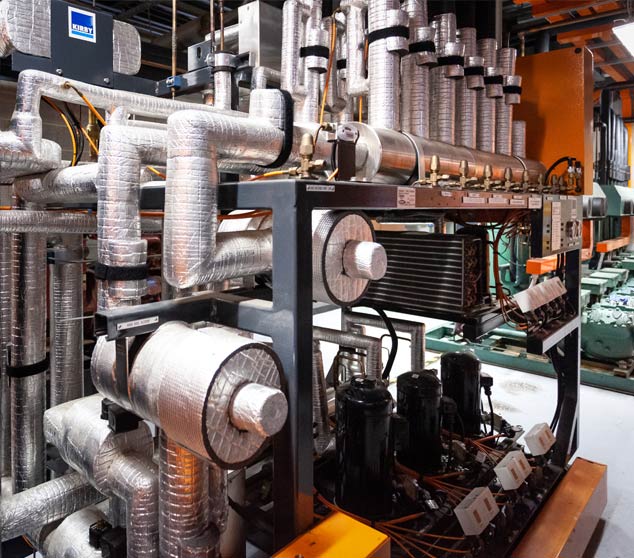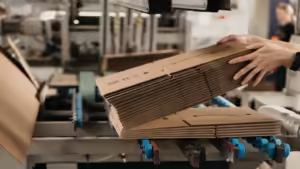
Running a business in Perth, especially one that relies on keeping things cold, means you’re constantly thinking about your refrigeration. From restaurants and cafes to supermarkets and even florists, effective and reliable cooling is absolutely essential. But with so many options out there, how do you navigate the world of finding the right commercial refrigeration services in Perth? This guide will break down everything you need to consider, ensuring your business stays cool and profitable.
Understanding Your Commercial Refrigeration Needs
Before you even start searching for a service provider, take a good hard look at what your business actually requires. Think about the following:
Type of Business
Are you a bustling café needing a reliable display fridge? Or perhaps a large supermarket requiring extensive cool rooms and freezer units? Maybe you’re a butcher requiring a specialised butchers freezer to keep your produce in perfect condition. The specific demands of your industry will heavily influence the type of refrigeration systems you need.
Size and Scale
How much space do you have available? And how much product do you need to store? A small corner store won’t need the same refrigeration capacity as a sprawling warehouse. Accurately assessing the scale of your requirements will prevent you from overspending on a system that’s too large or underspending on one that can’t keep up.
Energy Efficiency
Refrigeration units can be significant energy consumers. Choosing energy-efficient models can save you a considerable amount on your electricity bills in the long run. Look for units with high energy star ratings and consider features like LED lighting and smart temperature controls. It’s an investment that pays off!
Specific Product Requirements
Different products require different temperature ranges. Fish needs to be stored colder than fruit, and some delicate items might require precise humidity control. Make sure your refrigeration system is capable of maintaining the specific conditions required for your products to prevent spoilage and waste.
Choosing the Right Type of Commercial Refrigeration System
Now that you have a clearer picture of your needs, let’s delve into the different types of commercial refrigeration systems available:
Walk-in Cool Rooms and Freezers
Ideal for businesses needing large-scale storage, walk-in cool rooms and freezers offer ample space for storing bulk quantities of perishable goods. These are common in supermarkets, restaurants, and food processing facilities. Proper insulation and temperature control are crucial for efficient operation.
Display Fridges and Freezers
Perfect for showcasing products to customers, display fridges and freezers are commonly found in cafes, convenience stores, and supermarkets. They come in various shapes and sizes, from countertop models to large multi-deck units. Consider visibility, energy efficiency, and ease of cleaning when making your selection.
Under-Counter Fridges and Freezers
Space-saving and convenient, under-counter fridges and freezers are ideal for smaller kitchens and bars. They provide easy access to frequently used ingredients and beverages. Look for models with adjustable shelves and durable construction.
Blast Chillers and Freezers
Designed for rapidly cooling food items, blast chillers and freezers are essential for maintaining food safety and quality. They quickly lower the temperature of cooked food, preventing the growth of harmful bacteria. These are commonly used in commercial kitchens and catering businesses.
Finding the Best Commercial Refrigeration Services
Once you know what type of system you need, the next step is finding a reputable provider of commercial refrigeration services. Here’s what to look for:
Experience and Expertise
How long has the company been in business? Do they have experience working with businesses similar to yours? A company with a proven track record is more likely to provide reliable and professional service. Don’t be afraid to ask for references or case studies.
Range of Services
Do they offer installation, maintenance, and repair services? Ideally, you want a provider who can handle all your refrigeration needs, from initial setup to ongoing maintenance and emergency repairs. This ensures consistency and simplifies the process.
Licensing and Certifications
Ensure the company is properly licensed and certified to handle refrigeration equipment. This guarantees they meet industry standards and have the necessary qualifications to work safely and effectively. Ask to see their licenses and certifications before hiring them.
Response Time and Availability
Refrigeration breakdowns can happen at any time, so it’s crucial to choose a service provider who offers prompt and reliable emergency services. Do they have 24/7 availability? What’s their average response time? A quick response can prevent significant losses due to spoilage.
Customer Reviews and Testimonials
What are other customers saying about their services? Check online reviews and testimonials to get an idea of their reputation. Pay attention to both positive and negative feedback, and consider how the company responds to complaints.
The Importance of Regular Maintenance
Just like your car, your commercial refrigeration system needs regular maintenance to keep it running smoothly and efficiently. Neglecting maintenance can lead to breakdowns, reduced performance, and increased energy consumption.
Benefits of Regular Maintenance
- Extended Lifespan: Regular maintenance can significantly extend the lifespan of your refrigeration equipment, saving you money in the long run.
- Improved Energy Efficiency: Clean coils and properly functioning components can improve energy efficiency, reducing your electricity bills.
- Reduced Downtime: Preventative maintenance can identify and address potential problems before they lead to costly breakdowns.
- Enhanced Food Safety: Regular cleaning and sanitisation can help prevent the growth of bacteria and maintain food safety standards.
What Does Maintenance Involve?
A typical maintenance schedule should include the following:
- Cleaning Coils: Dirty coils reduce efficiency and can lead to overheating.
- Checking Refrigerant Levels: Low refrigerant levels can indicate leaks and reduce cooling capacity.
- Inspecting Seals and Gaskets: Worn seals and gaskets can allow warm air to enter the unit, compromising temperature control.
- Calibrating Thermostats: Accurate temperature control is essential for maintaining food safety and quality.
- Inspecting Electrical Components: Damaged wiring or loose connections can pose a safety hazard.
Dealing with Refrigeration Emergencies
Even with regular maintenance, refrigeration emergencies can still occur. Knowing how to respond quickly and effectively can minimise damage and prevent significant losses.
Common Refrigeration Problems
- Compressor Failure: A faulty compressor can cause the entire system to shut down.
- Refrigerant Leaks: Leaks can reduce cooling capacity and pose an environmental hazard.
- Blocked Coils: Dirty or blocked coils can restrict airflow and reduce efficiency.
- Thermostat Malfunctions: A malfunctioning thermostat can cause the unit to run too hot or too cold.
Steps to Take During an Emergency
- Contact Your Service Provider Immediately: Time is of the essence, so call your refrigeration service provider as soon as possible.
- Move Perishable Items: If possible, move perishable items to a backup refrigeration unit or a cooler with ice.
- Monitor Temperatures: Keep a close eye on temperatures to ensure food safety.
- Document the Incident: Take photos and notes of the problem to help your service provider diagnose the issue.
The Role of Commercial Electricians
It’s important to remember that refrigeration systems rely heavily on electrical components. When things go wrong, you might need the expertise of commercial electricians to diagnose and repair electrical faults. This could include issues with wiring, compressors, or control panels. Choosing a refrigeration service that also offers electrical expertise can streamline the repair process and ensure all aspects of the system are addressed.
Staying Compliant with Regulations
Commercial refrigeration is subject to various regulations and standards, particularly concerning food safety and environmental protection. Make sure your chosen system and service provider comply with all applicable laws and regulations.
Food Safety Standards
Maintaining proper temperatures is crucial for preventing the growth of harmful bacteria and ensuring food safety. Familiarise yourself with local food safety regulations and ensure your refrigeration system meets these standards.
Environmental Regulations
Refrigerants can have a significant impact on the environment, so it’s important to choose systems that use environmentally friendly refrigerants and comply with regulations regarding refrigerant handling and disposal. Look for systems that use natural refrigerants like CO2 or ammonia, which have a lower global warming potential.
Making the Right Investment
Choosing the right commercial refrigeration services is an investment in the future of your business. By carefully assessing your needs, researching your options, and prioritising quality and reliability, you can ensure your refrigeration system keeps your products fresh, your customers happy, and your business thriving. Don’t underestimate the importance of regular maintenance and prompt repairs to maximise the lifespan and efficiency of your equipment. And remember, a reliable refrigeration system is more than just a convenience – it’s a cornerstone of your business success.





